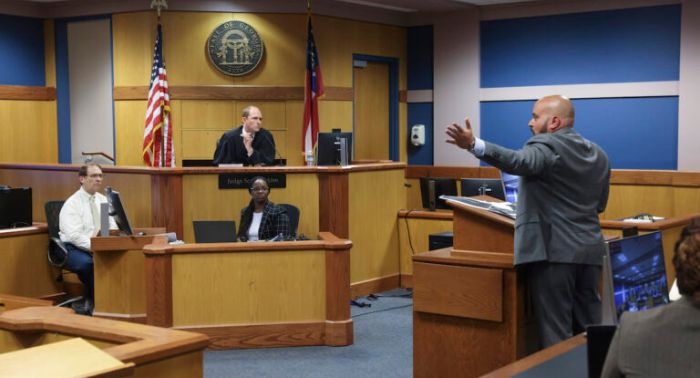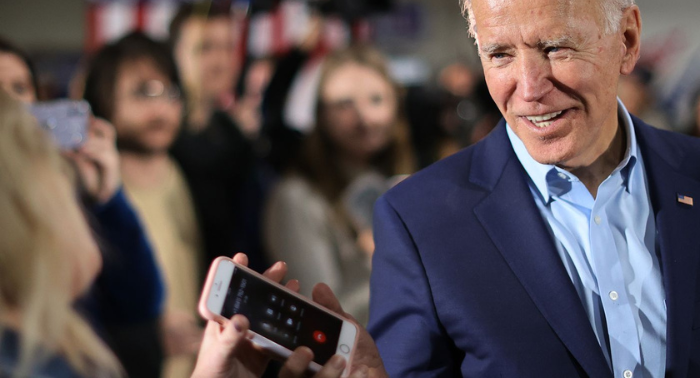On a recent Thursday, a ruling from a judge in Georgia delineated that the forthcoming trial involving Donald Trump, the former President, alongside 16 other individuals, would be conducted separately from the legal proceedings set against two other individuals, scheduled for next month. This case emanates from accusations of an illicit operation intending to reverse the 2020 election outcomes.
Legal representatives Sidney Powell and Kenneth Chesebro had earlier urged for a quick trial commencement. Consequently, Judge Scott McAfee of Fulton County Superior Court established the onset of their trial as October 23. On the other hand, Trump and several co-defendants pleaded for an individual trial, separate from Powell and Chesebro, hinting that the stipulated time frame was too limited for them to adequately prepare.
Last month, Fani Willis, the Fulton County District Attorney, initiated an indictment against Trump and 18 others, implicating them in violating Georgia’s anti-racketeering law by attempting to undermine Joe Biden’s triumph over the incumbent from the Republican party.
Contrary to Willis’ push for a collective trial, which she deemed more equitable and efficient, Judge McAfee highlighted the constrained time span and other considerations as significant factors in his decision to bifurcate the trial process. McAfee accentuated the significant burden on the court to uphold the due process rights of every defendant while ensuring substantial pretrial preparations, as a potent justification for the division. Moreover, McAfee anticipated potential further splits into smaller trial clusters.
This update might be perceived as favorable by other defendants keen to sidestep association with Powell, who had been conspicuously disseminating conspiracy narratives concerning foreign intervention in the election. In connection to this, Rudy Giuliani, a co-defendant and ex-mayor of New York City, has been actively distancing himself from Powell, discussing her extensively in a dialogue with special counsel Jack Smith’s team based in Washington, as relayed by an undisclosed source.
Furthermore, lawyer Eric Herschmann, who had previously opposed efforts to overturn the 2020 election results, shared with the committee scrutinizing the January 6, 2021, U.S. Capitol attack, that he considered Powell’s theories “nuts.”
Despite Powell and Chesebro petitioning for individual trials, the judge rejected this proposition. Charges against Chesebro include orchestrating a scheme where 16 Republicans in Georgia would certify Trump’s victory, asserting themselves as the legitimate electors of the state. Powell, conversely, is alleged to have partaken in unauthorized access to election equipment in Coffee County.
The expansive indictment document, nearly 100 pages in length, outlines numerous supposed attempts by Trump and his allies to negate his 2020 electoral defeat in Georgia. This includes coercing the state secretary, lobbying Georgia legislators to neglect the populace’s choice, and endorsing the appointment of pro-Trump electoral college representatives.
Expanding on his rationale to separate the trials, Judge McAfee expressed doubts over the prosecutor’s claims regarding the efficiency of a collective trial. He underscored the logistical and security challenges associated with accommodating all the involved parties in one courtroom. Moreover, McAfee pointed out the increased time necessities for distinct trial phases owing to the addition of more defendants.
He further mentioned plans to assemble a jury by November 3 to adhere to the rapid trial requisitions from Powell and Chesebro, a task becoming increasingly challenging with more defendants in the mix. Additionally, the ongoing efforts by five defendants to transfer their cases to a federal court add complexity to the scenario, raising uncertainties on potential impacts if successful.
Last week, U.S. District Judge Steve Jones dismissed an application by Mark Meadows, Trump’s final White House chief of staff, to shift his case to federal jurisdiction, a decision currently under appeal. The subsequent steps for the remaining four are anticipated next week. Despite requests to postpone the state court proceedings during the federal transfer attempts, McAfee declined, affirming the continuation of pretrial activities without delay.




